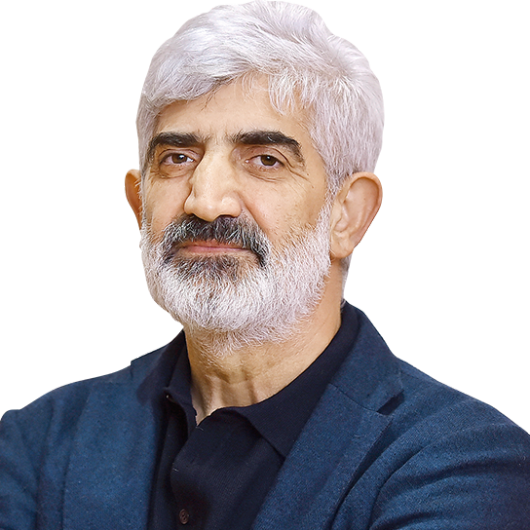
- 25.11.2024, Monday
- 09:31
Will Iran give up on its regional chaos doctrine?
21:3322/08/2024, Thursday
Next article
İhsan Aktaş

The Iranian state, established despite the United States, re-emerged on the world stage after the 1979 revolution. The founding ideology of the newly formed Iranian state was fundamentally based on anti-Americanism. However, a closer look at Iran's official ideology reveals several key points that need to be examined more closely. The first argument underlying Iran's official ideology is the widely accepted belief in its opposition to the United States. Since the establishment of the Iranian regime,
The Iranian state, established despite the United States, re-emerged on the world stage after the 1979 revolution. The founding ideology of the newly formed Iranian state was fundamentally based on anti-Americanism. However, a closer look at Iran's official ideology reveals several key points that need to be examined more closely.
The first argument underlying Iran's official ideology is the widely accepted belief in its opposition to the United States. Since the establishment of the Iranian regime, the U.S. has aimed to eliminate this system. The mutual perception of each other as the "other" brings the U.S. and Iran closer at a rhetorical level in terms of regional policies. Fundamentally, the U.S. is Iran's enemy, and the ongoing struggle against this enemy is one of the main pillars of Iran's official ideology.
Secondly, as a Shiite state, Iran has a mission to fight against Israel and to liberate Jerusalem. This mission serves not only a religious responsibility for Muslims but also a political and theological-political purpose. Iran’s desire to position itself as the protector of Muslims against Israel’s encirclement also extends to establishing superiority over Sunnis.
Thirdly, the anti-American and anti-Israel stance is an important tool used within Iran’s internal politics to maintain dominance over reformists. Suppressing the reformists' calls for freedoms by leveraging anti-American and anti-Israel sentiment is seen as necessary for the survival and sustainability of the official ideology.
Moreover, the revolution of 1979 and the subsequent export of this revolution to neighboring regions are among the cornerstones of Iran's official ideology. Today, however, this ideological motivation is used as a tool to motivate Iran’s proxy forces in Iraq, Syria, and Yemen.
Iran has historically viewed the instability of other countries in the region as a foundation for its own stability. The chaos in neighboring countries has, in a way, guaranteed Iran’s stability. However, the current situation suggests that the continued chaos in regional countries may also draw Iran into these chaotic processes. The instability and even chaos in countries such as Pakistan, Iraq, and Syria could eventually pull Iran into this chaos.
Until now, the motto “We prefer to fight our enemies in Syria, Iraq, or Lebanon rather than in Khuzestan (Iranian territory)” has lost its validity.
Recently, Iran’s direct confrontations with the U.S. and Israel and the attacks it has faced within its own borders have prompted a re-evaluation of its proxy warfare strategy. The insistence on waging war against the U.S. and Israel on neighboring territories is now being questioned. The assassinations carried out within a sovereign and national state like Iran necessitate a re-calculation of Iran’s geopolitical strategies.
While the "Development Road" project between Türkiye and Iraq is viewed from an economic perspective, it also represents an opportunity for Iraq’s national state to begin exercising its sovereignty rights independently. Türkiye, with its imperial heritage and experience in working with different nations, religions, and cultures, has established more stable partnerships with other countries. In this sense, Türkiye prioritizes Iraq’s security and national unity, considering its own security to be of equal importance to that of its neighbors.
Given Türkiye’s status as a country rich in natural resources and its geographic location, the stability of neighboring countries is crucial for the security of trade routes. The progress of Türkiye’s solidarity with Iraq has also influenced Türkiye's relations with Syria. While Türkiye represents stability in the region, it remains to be seen how Iran will respond to these developments. In my opinion, Iran now faces a situation where it must transition from a chaos theory to a stability theory.
#Iran
#Türkiye
#Region
#Chaose
#Oil
#Syria
LEGAL NOTICE
The BIST name and logo are protected under the "Protected Trademark Certificate" and cannot be used, quoted, or altered without permission.All rights to the information disclosed under the BIST name are entirely owned by BIST and cannot be republished. Market data is provided by iDealdata Financial Technologies Inc. BIST stock data is delayed by 15 minutes.
